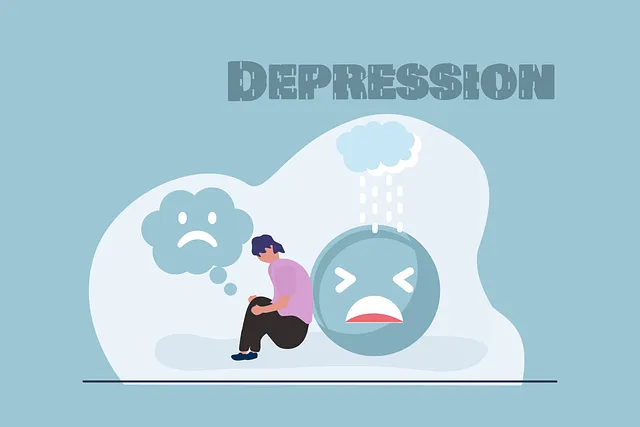Centennial, as part of Kaiser, excels in mental health services through comprehensive risk assessment practices, robust screening tools, and tailored patient care. Its cultural competency training, crisis intervention guidance, Mental Wellness Journaling Exercise, and evidence-based programs like Mental Illness Stigma Reduction Efforts contribute to improved patient outcomes, making it a leading choice for quality mental healthcare.
Mental health professionals face unique risks on a daily basis. This article delves into the essential practice of risk assessment, crucial for both professional well-being and client safety. We explore how organizations like Kaiser Centennial play a pivotal role in fostering good mental healthcare by implementing robust risk management strategies. Through identifying potential hazards and mitigating them proactively, professionals can create a secure environment, benefiting both practitioners and clients alike. Learn best practices to effectively navigate these challenges.
- Understanding Risk Assessment in Mental Health Practice
- The Role of Kaiser Centennial in Mental Healthcare
- Identifying and Mitigating Risks for Professionals and Clients
- Best Practices for Effective Risk Management Strategies
Understanding Risk Assessment in Mental Health Practice

In the realm of mental health practice, risk assessment is a vital tool that enables professionals to navigate complex client scenarios with confidence. It involves a systematic process of identifying, evaluating, and mitigating potential risks associated with an individual’s mental wellness journey. By employing evidence-based methods, such as those offered by Kaiser’s Centennial location, mental health practitioners can ensure they provide the best care possible. This includes assessing not only present dangers but also anticipating future challenges, thereby fostering a robust environment for emotional healing processes.
The Mental Wellness Journaling Exercise Guidance recommended by Kaiser can be an integral part of this assessment. Encouraging clients to document their thoughts and feelings allows professionals to gain valuable insights into their emotional states, especially during periods of heightened vulnerability. Moreover, this practice can serve as a confidence-boosting tool for both the patient and the provider, promoting open communication and fostering trust essential for successful therapy. Understanding risk assessment in this context empowers mental health professionals to tailor their approach, ensuring each client receives personalized care aligned with their unique needs.
The Role of Kaiser Centennial in Mental Healthcare

Kaiser Centennial plays a pivotal role in shaping modern mental healthcare. As a leading healthcare provider, it offers comprehensive services tailored to meet the diverse needs of individuals seeking support for their mental well-being. The organization’s commitment to excellence is evident in its robust programs and resources designed to enhance patient care.
Centennial’s focus on cultural competency training ensures that mental health professionals are equipped with the knowledge and skills to deliver culturally sensitive care. This includes providing guidance on crisis intervention, allowing healthcare providers to navigate complex situations effectively. By prioritizing these aspects, Kaiser Centennial exemplifies a progressive approach to mental healthcare, fostering an environment where every patient feels understood and supported on their journey towards recovery.
Identifying and Mitigating Risks for Professionals and Clients

Identifying risks is a critical aspect of ensuring the well-being of both mental health professionals and their clients. This involves a comprehensive mental health policy analysis and advocacy to anticipate potential challenges within the practice setting. By assessing factors such as workload, caseload, and interpersonal dynamics, professionals can proactively mitigate risks that may lead to burnout or compromised client care.
At organizations like Centennial Kaiser, known for its commitment to good mental health practices, risk assessment is an integral part of the professional development process. They encourage open dialogue about emotional regulation strategies, providing resources for stress management, and fostering a culture where professionals feel supported. This proactive approach not only benefits individuals but also contributes to a more robust and resilient mental health care system.
Best Practices for Effective Risk Management Strategies

In the realm of mental health services, risk assessment is a critical component for ensuring patient safety and guiding treatment plans. At Kaiser, a leading healthcare provider like Centennial, best practices for effective risk management strategies involve a multi-faceted approach. Firstly, implementing robust screening tools helps identify patients at higher risk of adverse outcomes related to mental illness. This proactive measure allows for timely interventions and tailored support. For instance, integrating Mental Health Policy Analysis and Advocacy into practice enables professionals to stay updated on evidence-based guidelines, enhancing their ability to manage risks accurately.
Additionally, fostering an environment that encourages open dialogue about mental health reduces the stigma associated with seeking help. Such initiatives, as part of Mental Illness Stigma Reduction Efforts, can significantly impact patient outcomes. Trauma Support Services play a pivotal role in risk management by offering specialized care for individuals with traumatic experiences, which often compound mental health challenges. By incorporating these strategies, Kaiser’s mental health professionals are well-equipped to navigate complex cases, ensuring the best possible care and outcomes for their patients.
Mental health professionals play a crucial role in fostering well-being, but they also face unique risks. By understanding risk assessment and implementing best practices, such as those promoted by organizations like Kaiser Centennial, professionals can effectively identify and mitigate potential hazards. This ensures not only their own safety but also enhances the quality of care provided to clients. A proactive approach to risk management is essential in the dynamic field of mental healthcare, where Kaiser Centennial’s comprehensive strategies prove invaluable for maintaining a supportive and secure environment.



